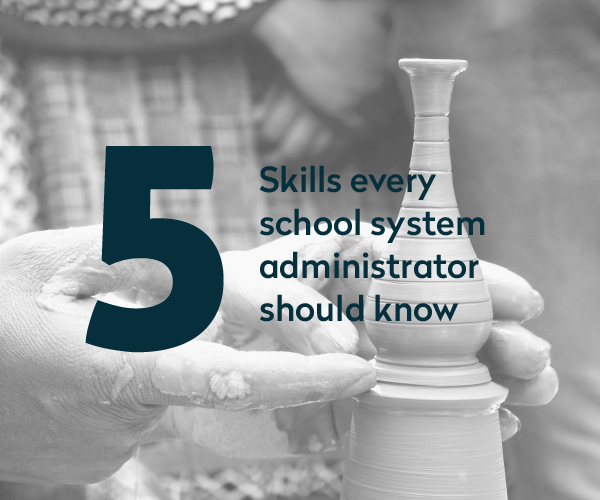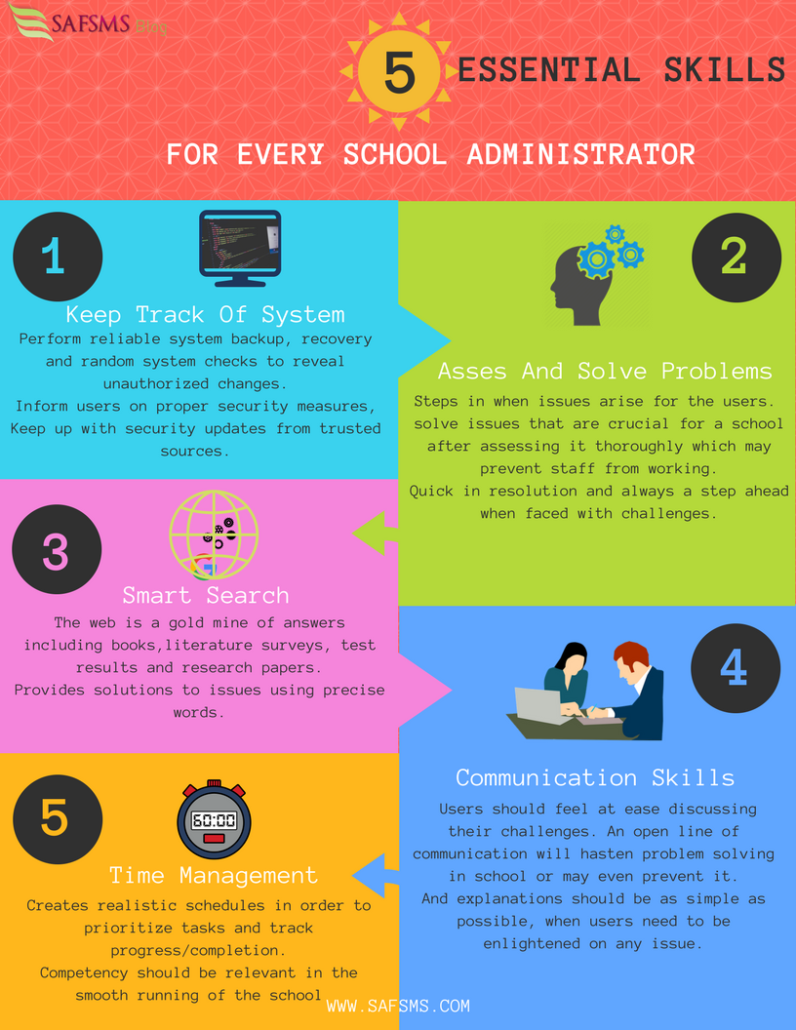Schools adopting and maintaining the tech culture is dependent on the attitude of the users and the essential school admin skills. When users are willing to use software but run into issues, it is the responsibility of the system admin to fix problems and find solutions. Failure to this can result in redundant staff and disinterested users. The purpose of any system is to ensure ease of work for its users, so they have more time to focus on the important things.
In summary, the system admin is an important part of the technology acceptance in a school and it is vital that they are capable of simpler tasks such as software installation to the more complex user administration, security management and more.
An administrator’s job never ends. Whatever the issues it’s up to him to fix it, therefore he should be many things, sometimes at once. Below are just some of those things
Keeping track of System vulnerability
It is the responsibility of the system admin to ensure the school’s network infrastructure is stable and secure from unauthorized access. Some of the ways a system admin can have the awareness of the school’s system vulnerability include
- Performing reliable system backup and recovery processes
- Random system checks to reveal unauthorized changes to the system
- Informing users on proper security measures like frequent password change and protection and logging off when system is not in use
- Keep up with security bulletins and blogs with updates from vendors and other trusted sources.
Ability to assess and solve problems
System administrators are trained to prevent and resolve IT solutions, which is not the case for the staff who constantly require the help of a skilled personnel. The system administrator steps in when issues arise for the users and ability to solve the issues is crucial for a school since it may prevent staff from working. So, it is vital for a school system administrator to assess the problem and solve issues as quickly as possible.
Smart Web search
As discussed earlier, it is important for the system admin to be skilled in order to solve issues. Some issues may require research, which is where the web comes in. The web is a gold mine of answers including books,literature surveys, test results and research papers. System admins can very easily find solutions to issues they run into if they can search the web efficiently. Efficient web search may be using (-) to narrow searches and using precise words
Jule Barta, a curriculum development manager in Redlands, CA, added, “Many teachers do not know how to do effective searches. If they are taught how to search the Web more efficiently, it will help them expand their knowledge and be able to teach the students the same skill.”
Communication Skills
Communication is important and necessary for the system administrator so users can feel at ease discussing their challenges. An open line of communication will hasten problem solving in school or may even prevent it. The administrator should be able to give explanations as simply as possible, ask users to report issues and constantly offer help to users.
Communication via email is a good way to send messages to multiple users. Information about system updates, network issues and other software issues may be sent
Productive Time Management
Solving issues takes a large chunk of the system administrator’s time, which means little time left to focus on other responsibilities that may be performing system audits, backups, security, system performance and hardware and software configuration. System admins need to create realistic schedules in order to prioritize tasks and track progress/completion.
Get the infograph below:
The System administrator’s competency is relevant in the smooth running of a school. If the system admin is skilled, then the users are happy, which means great working conditions. Which happy working environment doesn’t succeed?








